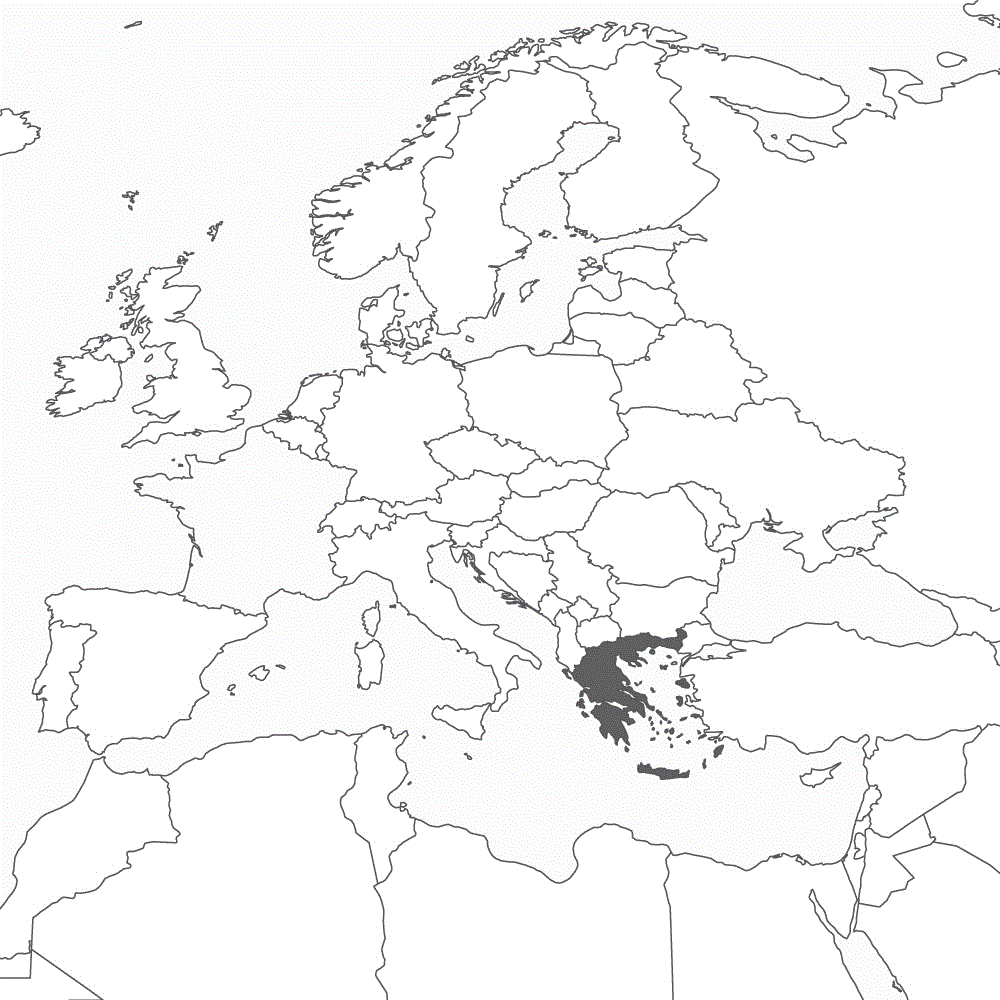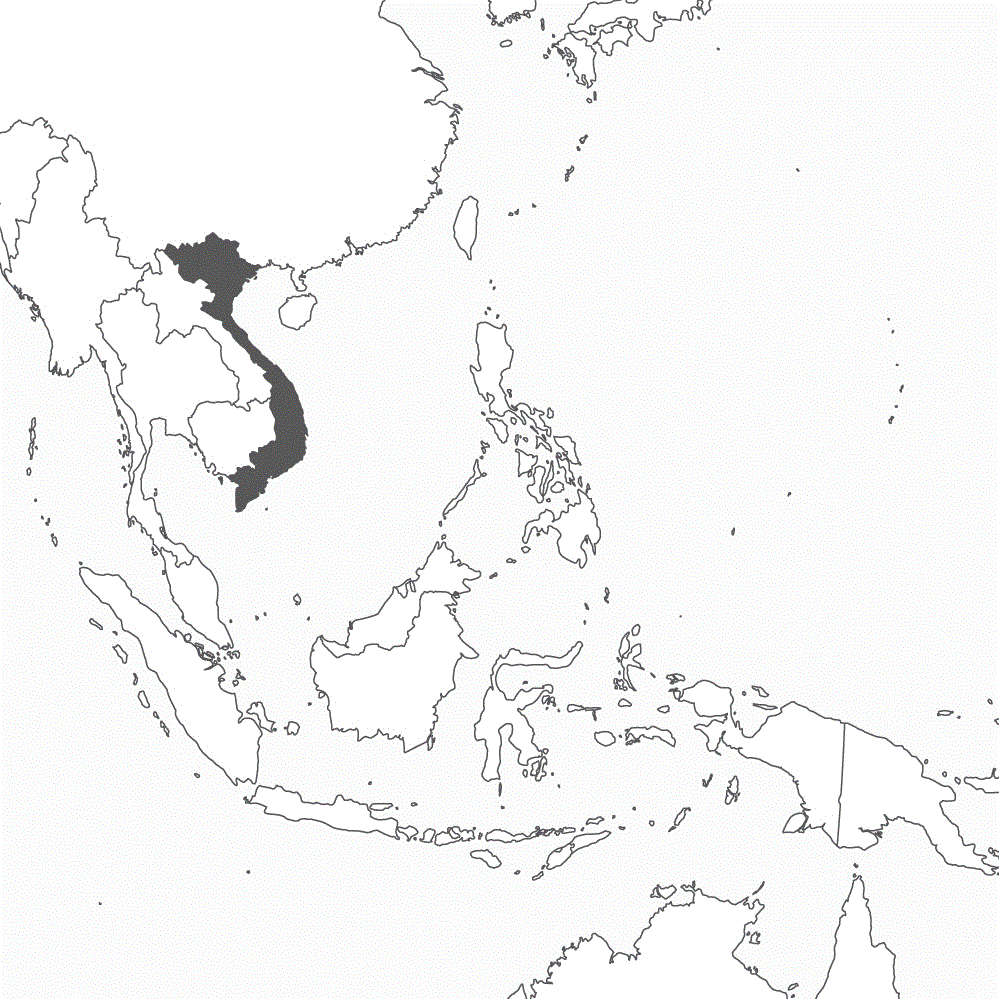Indefinitely Postponed
EU-Africa meetings cancelled: EU falls behind in competition for influence on the African continent.
BRUSSELS (Own report) - In the competition for influence on the African continent, Berlin and the EU are falling further behind China and other emerging countries. The meeting of the EU's foreign ministers with those of the African Union (AU), scheduled for today in Brussels, as well as an EU-AU summit planned for October - set to adopt a new "partnership agenda" - were both postponed. Covid-19 pandemic restrictions pertaining to face-to-face meetings is the official reason given for these postponements. According to observers, however, the AU - rather unprecedentedly - is insisting on no longer being reduced by the EU to solely the role of raw materials suppliers and sales markets. Within the EU, on the other hand, there is disagreement over how far the EU should go to ward off African migrants - a debate hardly likely to arouse sympathy within the AU. African states are showing more self-confidence since China, as well as other countries, such as India, have significantly strengthened their position in Africa, breaking the Western monopoly on influence. Read more
A Disenfranchisement Pact
Von der Leyen's EU Migration Pact replicates illegal Hungarian measures; Western powers already create new reasons for flight.
BRUSSELS (Own report) - Commission President Ursula von der Leyen's new EU Migration Pact replicates illegal elements of the notorious Hungarian anti-refugee defense and is sharply criticized by refugee and human rights organizations. According to the pact, refugees coming from countries with low rates of asylum recognition should be detained in camps. The duration of detention can be officially accumulated to six months. Hungary had previously established such camps ("transition camps"), but had to announce their immediate closure after the European Court of Justice (ECJ) declared the Hungarian internment practice illegal. The EU has already begun setting up such camps, one is under construction on the Greek Island of Samos, and another is to be constructed on Lesbos. Refugee and human rights organizations have voiced sharp criticism, calling it a "diabolical disenfranchisement pact." Meanwhile, Western powers are creating new reasons for flight: brutal sanctions are starving Syria's population. Read more
Germany in the Indo-Pacific (II)
In its competition with China Germany banks on close cooperation with that country's traditional rival Vietnam.
BERLIN/HANOI (Own report) - In the competition for influence in the "Indo-Pacific," Germany is intensifying cooperation with Vietnam, China's traditional Asian rival. Forty-five years after the establishment of diplomatic relations between Bonn and Hanoi on September 23, 1975, the German government seeks to enhance the "strategic partnership," Germany has maintained with Vietnam since 2011, in particular the expansion of economic relations. From German companies' perspective, this is beneficial, because, for two decades, Vietnam has become a lucrative low-wage alternative to China in some branches, especially in textile and, increasingly in electronics - albeit with certain limitations. By supporting Hanoi in its South China Sea conflict with Beijing, Berlin aims at strengthening a Southeast Asian counterweight to the People's Republic - just like Washington, which, in addition, is involving Vietnam to a growing extent in joint military exercises. Read more
Berlin: In the Underground War against Russia and China (II)
Commentary by Hans-Rüdiger Minow
In the underground war against Russia and China, material constraints determine the order of precedence: Russia is a neighbor and geographically much closer. Logistically it seems to be manageable, as far as the western region's technical density is compatible with that of Germany (road, rail and flight standards), militarily containable, once threat potential to Moscow can be permanently deployed at its borders, and economically exploitable, if the reserves of raw materials can be procured from the Far East (also by sea), at a low price. However, the further Berlin reaches beyond Moscow, the more complicated the underground becomes. Read more
Business Rather than Decoupling
EU/China: Progress in negotiations of investment agreement. German Minister of State rejects "US demonization of China".
BERLIN/BRUSSELS/BEIJING (Own report) - The EU and China intend to reach an accord on a bilateral investment agreement before the end of the year. This is the main result of yesterday's video conference between the European Union's leaders and China's President Xi Jinping. The bilateral negotiations, therefore, have been making significant progress and their conclusion before the end of the year seems realistic. German enterprises, in particular, are very interested in the treaty. Unlike media reports to the contrary, the majority of these enterprises are not leaving the People's Republic of China due to current political tensions, but in many cases are even "strengthening" their presence, as the European Chamber of Commerce in China notes. Whereas EU Foreign Affairs Commissioner Josep Borrell warns against "Chinese expansionism" and demands that the EU close ranks against Beijing, the Minister of State in the German Ministry of Foreign Affairs, Niels Annen, pleads for "maintaining dialog" with China: independence from the USA should be preserved in the conflict with Beijing. Read more
Germany's Pacific Past (I)
The most savage German massacre in the colonial war in China took place 120 years ago today - in the small town of Liangxiang.
BERLIN/BEIJING (Own report) - Today, 120 years ago, in the small city of Liangxiang, German troops committed the most savage massacre in the colonial war in China. Under the pretext of fighting insurgents, soldiers from two battalions of marine infantry opened fire on residential areas in the small city of Liangxiang southwest of Beijing and, after conquering the town, summarily executed all its male residents. The number of inhabitants was estimated at between 3,000 and 4,000. The Liangxiang massacre was followed by many more in the course of suppressing the "Boxer Rebellion." In Berlin's opinion, the norms of the laws of war apply only to "civilized" nations, since China and its population were not considered as such; they were not binding in the German colonial war. The German troops' murder-by-arson in China bears clear resemblance to the German Empire's colonial warfare in Africa. In view of Berlin's new "Indo-Pacific" offensive, german-foreign-policy.com reminds of Germany's murderous colonial past at the Pacific. Read more
Berlin: In the Underground War against Russia and China
Commentary by Hans-Rüdiger Minow
Poisoning, kidnappings and politically motivated serial murders are nothing new to Germany. They were part of daily life in the post-war period: Terrorist operations - anticipating casualties - against the infrastructure of the German Democratic Republic (GDR), were carried out by a social-democratic-clad underground organization ("Kampfgruppe gegen Unmenschlichkeit" -"Combat Group against Inhumanity") headquartered in the American sector in Berlin. Eastern intelligence services retaliated with kidnappings of anti-communist organizers and with contract killings within the Federal Republic of Germany (FRG) - up until the 1980s. Read more
The EU's Strategic Compass (II)
Berlin promotes focusing EU military policy and expanding consolidation of European military forces within the NATO framework.
BERLIN (Own report) - With a clearer focus of EU military policy and the expansion of cooperation among European military forces within the NATO framework, the German government seeks to strengthen Europe's military clout. During the German EU Council Presidency, the EU should develop a "Strategic Compass" to bundle the, at times, highly divergent geostrategic interests within the Union, based on a common threat analysis, currently in preparation by intelligence services of EU member countries. At the same time, Berlin is promoting cooperation within NATO's Framework Nations Concept (FNC) aimed at bringing together troops from various countries for joint operations and, in particular, placing units of smaller member nations under the command of larger NATO countries, including under German command. In addition to expanding the continental military cooperation, Berlin is focusing on the "E3" i.e. an informal alliance with France and Great Britain, intended to maintain the availability of the post-Brexit British military potential for the EU. Read more
In the Transpacific Cold War
China's Foreign Minister Wang Yi visits Berlin. USA intensifies economic sanctions and military provocations.
BERLIN/BEIJING (Own report) - US aggression against China, increasing almost on a daily basis, has accompanied Chinese Foreign Minister Wang Yi's visit to Europe, which ends today. Wang is holding talks today in Berlin. He is seeking to prevent a transatlantic concerted front against Beijing and has warned during his trip against "a new Cold War." The Trump administration has significantly expanded its sanctions against Huawei and threatened Chinese Internet companies with a ban on their business activities in the USA. It has recently also imposed sanctions on subsidiaries of the state owned CCCC construction company, nicknamed the "Huawei of infrastructure" by US politicians. CCCC is playing an important role in construction projects within the framework of the New Silk Road. The USA is also increasing its military provocations. Berlin has just reaffirmed its rejection of the "decoupling" from Beijing, demanded by Washington. Wang's visit in Europe has also been accompanied by systematic orchestrated protests intended to hamper cooperation, with German Greens playing a key role. This can only favor US aggression. Read more
GERMAN-FOREIGN-POLICY.com
Information on German Foreign Policy: News + Interviews + Analyses + Background



